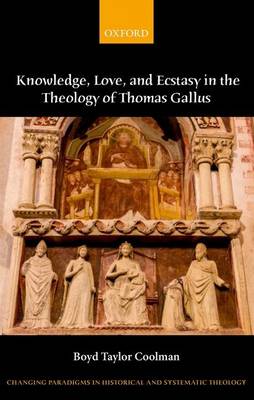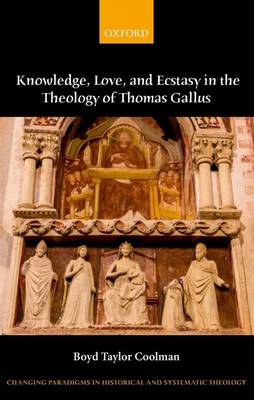
- Afhalen na 1 uur in een winkel met voorraad
- Gratis thuislevering in België vanaf € 30
- Ruim aanbod met 7 miljoen producten
- Afhalen na 1 uur in een winkel met voorraad
- Gratis thuislevering in België vanaf € 30
- Ruim aanbod met 7 miljoen producten
Zoeken
Knowledge, Love, and Ecstasy in the Theology of Thomas Gallus
Boyd Taylor (Associate Professor of Theology, Associate Professo
€ 156,95
+ 313 punten
Omschrijving
This volume provides the first full study of Thomas Gallus (d. 1246) in English and represents a significant advance in his distinctive theology.
Specificaties
Betrokkenen
- Auteur(s):
- Uitgeverij:
Inhoud
- Aantal bladzijden:
- 286
- Reeks:
Eigenschappen
- Productcode (EAN):
- 9780199601769
- Verschijningsdatum:
- 26/01/2017
- Uitvoering:
- Hardcover
- Afmetingen:
- 222 mm x 145 mm
- Gewicht:
- 458 g

Alleen bij Standaard Boekhandel
+ 313 punten op je klantenkaart van Standaard Boekhandel
Beoordelingen
We publiceren alleen reviews die voldoen aan de voorwaarden voor reviews. Bekijk onze voorwaarden voor reviews.







